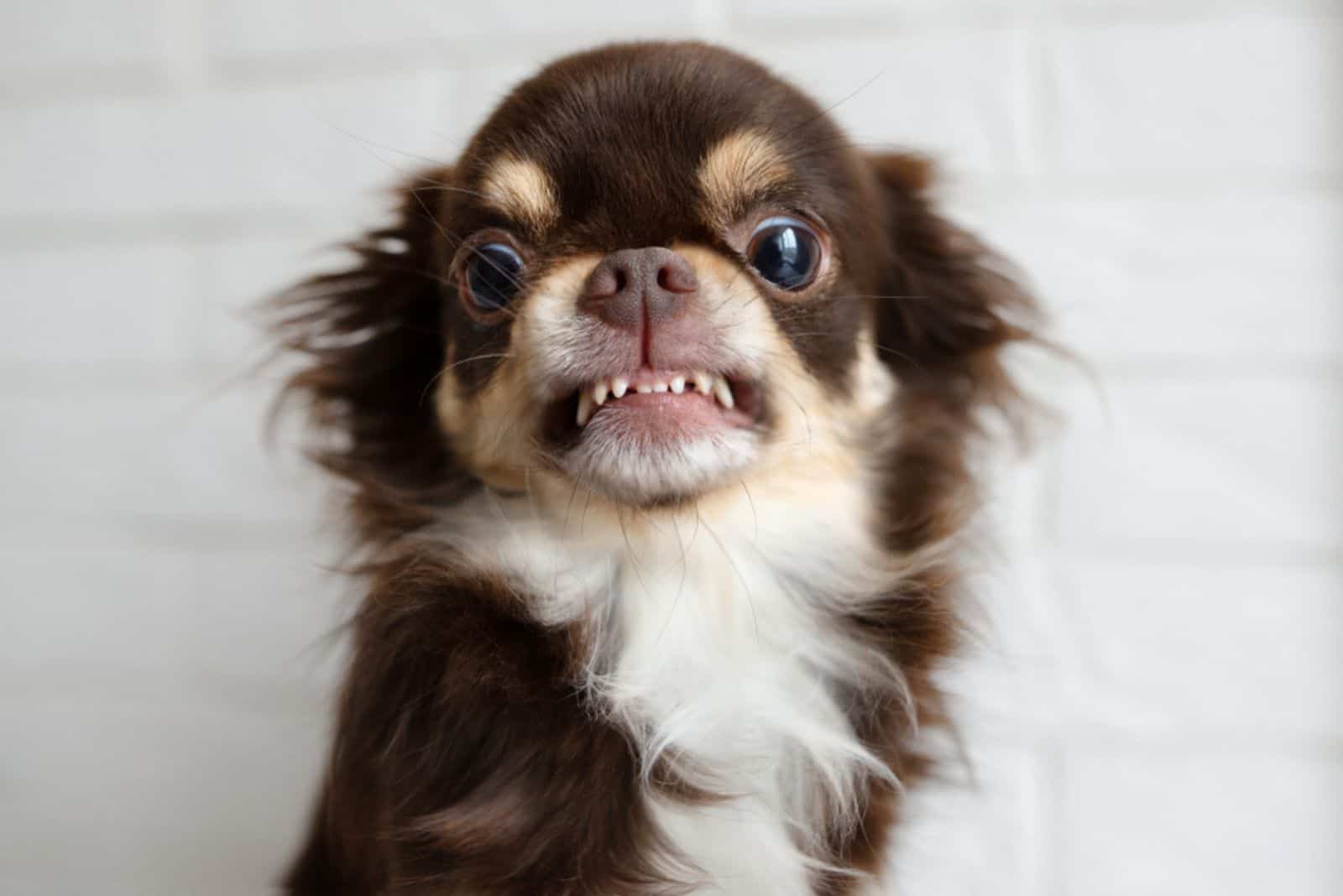Chihuahuas are known to growl from time to time, and some dog owners find that unacceptable. But really, should you punish a Chihuahua for growling?
Growling can be a nasty habit that some dogs have, but sometimes it’s not really clear how you should deal with it. Some people prefer to be firm and punish their dogs for such behavior, while others choose a softer route.
It seems that this situation is particularly tricky with Chihuahuas, because of their “angry small dog” reputation.
In this article, we will look at both the causes of Chihuahua growling, the and cons of punishing, as well as some tips for handling it properly.
Why Do Chihuahuas Growl? Potential Causes
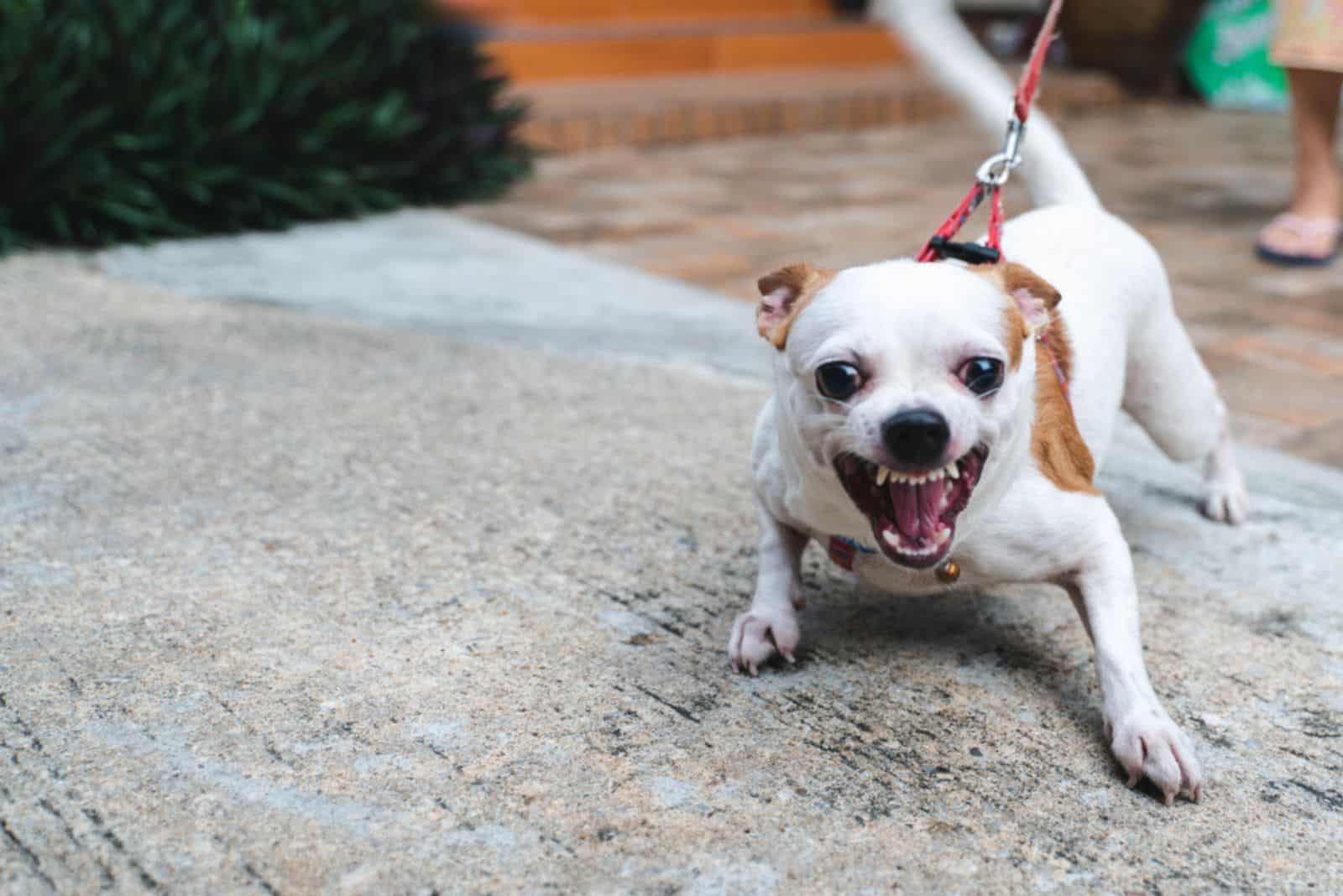
Growling is a useful form of communication. Our dogs provide us with information about their feelings by growling.
It’s not always easy for dogs and people to communicate clearly. Growls are one extremely obvious sign that we can respond to in order to avoid issues.
Dogs may growl when startled by a stranger, when handled roughly, or possibly when they are carrying something they are extremely concerned about losing. Very rarely do dogs growl about nothing.
There is a chance of avoiding a problem getting worse if we pay attention to this grumble.
Conversely, ignoring the growl and approaching the dog will teach your dog that they are not being heard and that he needs to attempt something “louder” the next time (barring teeth, a snap, or even a bite).
Reasons Why You Shouldn’t Punish Your Chihuahua For Growling
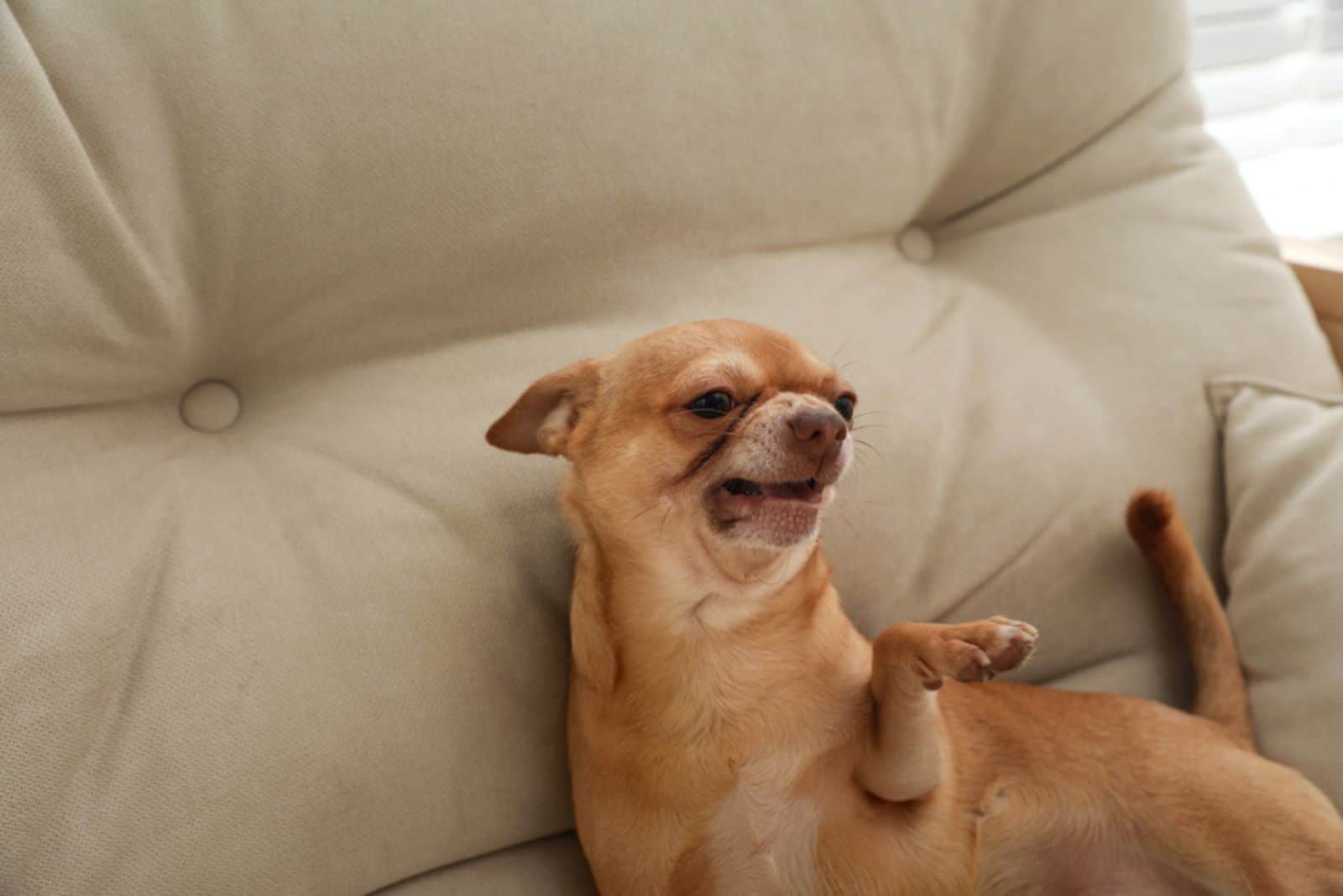
We are firmly on the “you should not punish your Chihuahua for growling” side of this argument.
There are several reasons why we think growling should not be punished, and why it should actually be listened to. Below are three of the biggest reasons.
Your Dog Is Trying To Tell You Something
The primary purpose of your dog’s growl is to communicate. It conveys to you in a way that people can understand.
Before dogs growl, they try to tell us in a variety of other ways that they are unhappy, including head turns, tongue flicks, paw lifts, and more.
However, we can sometimes miss the more subtly expressed kinds of communication since we typically are unable to decipher a dog’s sophisticated body language and signals.
Punishing A Dog Can Come Back To Bite You (Literally)
It’s risky to punish a Chihuahua growl. What occurs afterward when you discipline your dog for growling? Your dog learns not to alert you to their discomfort. They are still uneasy, afraid, or angry, but they are choosing to remain silent.
It chooses not to inform you because it thinks that you will be angry. And the longer this goes on, the more the dog will keep its frustrations pent up, which can sometimes result in aggression towards you, other animals, or even other people.
In this case, the bite can be much harsher than the growl.
It Can Be A Sign Of Something More Serious
Growling is your Chihuahua’s way of giving you details about its condition.
Your dog’s growl can be viewed as a warning signal, similar to a smoke alarm. If your dog is acting weird, it might be literally a signal that there is a problem and that you should react to it.
Therefore, punishing the growl is similar to unplugging the smoke alarm. You are just managing the symptom, and not the actual cause.
What To Do Instead Of Punishing
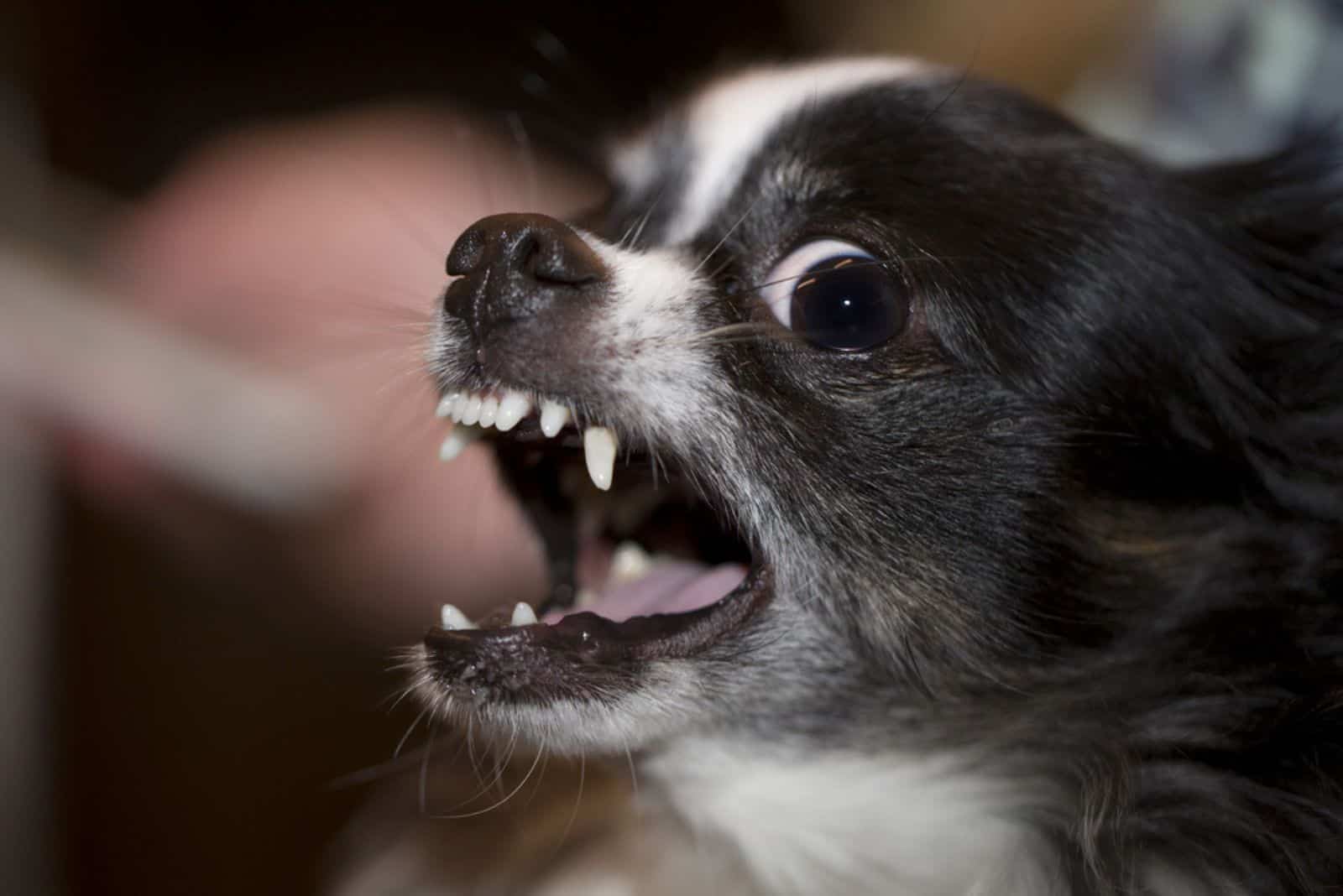
So, what can you do if your Chihuahua is growling? If this is happening while your dog is still growing and developing, it’s critical to deal with the underlying cause of the growl.
Note the circumstances at the time of the growl happening — what caused your dog to growl? Was your dog scared of something? Was it protective or trying to defend something it considers its property?
Was your dog in the middle of a meal when someone interrupted it? These are just some of the things that you should be asking yourself in order to get to the bottom of your Chihuahua growling.
Additionally, try to adapt your behavior in order to put the Chihuahua at ease and help it stop growling.
Is there anything that you can do differently the next time to stop the dog from being so uneasy that it needs to growl? Is this a problem that has to be addressed with training or behavior modification because it’s becoming worse?
Read next: Why Chihuahuas Are The Worst? 21 Reasons
When To Consult A Professional Dog Trainer
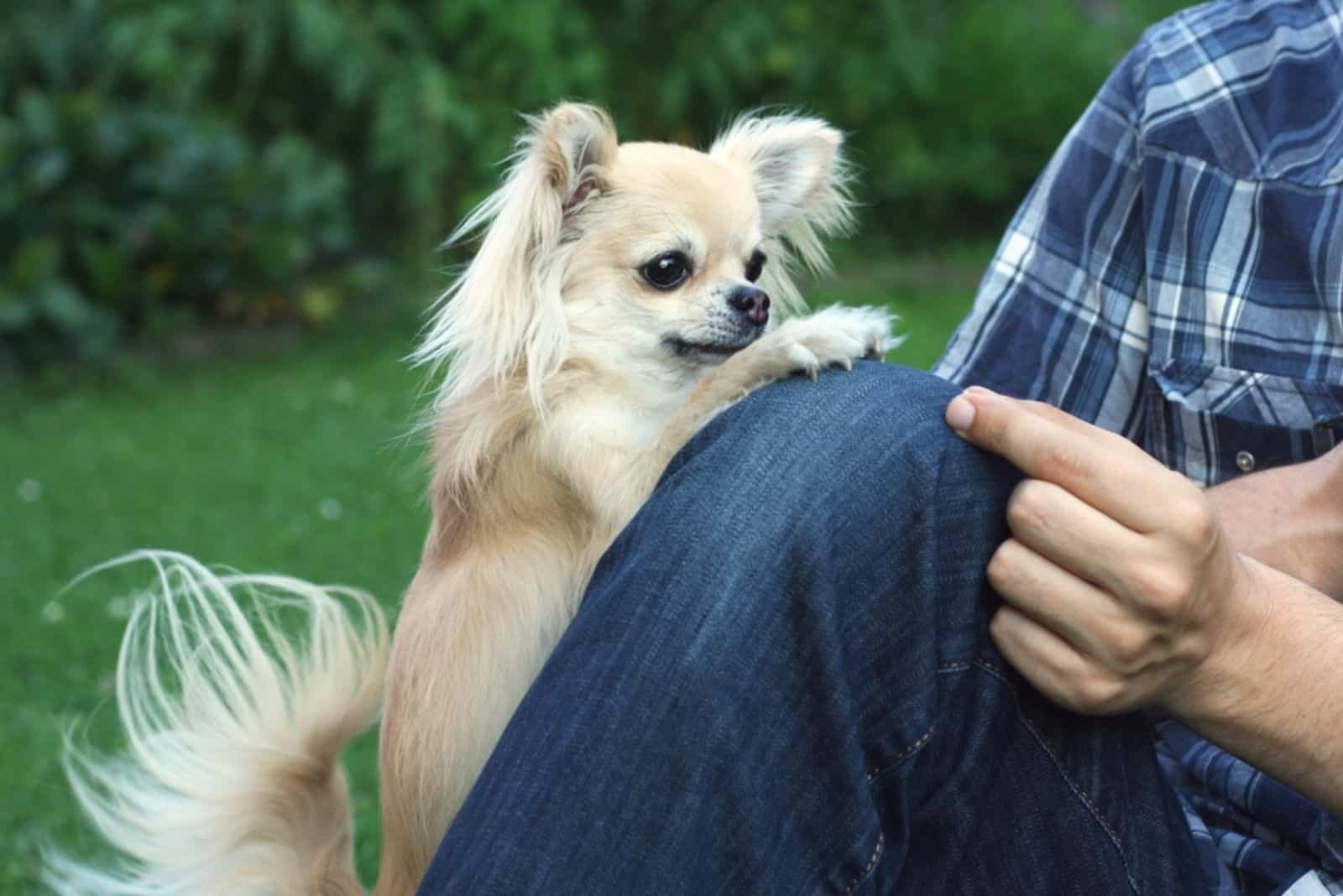
When your dog is growling in order to protect a bone, its food bowl, its bed, or even its favorite human, it’s growling because it’s trying to protect something that it considers to be valuable.
It is an extension of the dog’s natural protective instinct which is one of the things that makes them such good guardians and companions.
However, if it becomes too much, or if you are unsure what the actual reason for growling is, you might want to seek some professional help.
Professional dog trainers can work with your dog to help it feel more comfortable being handled so it won’t need to growl to stop it.
Working on a behavior modification plan with a skilled, licensed trainer in these circumstances might alter your dog’s perception of the situation and lessen your dog’s desire to growl.
Counter-conditioning and desensitization is a positive training technique that science-based dog trainers employ to make your dog more at ease and even come to love these circumstances.
Final Thoughts
In conclusion, punishing a Chihuahua for growling is not an effective method to resolve aggressive behavior in the breed. Instead, it can lead to fear and mistrust in your dog, exacerbating the problem.
Training and positive reinforcement techniques, as well as addressing any underlying health or environmental issues, are the best ways to prevent and treat aggressive behavior in Chihuahuas.
It is important to understand that growling is a natural communication tool for dogs and should not be punished. Building a strong bond with your Chihuahua based on trust, respect and positive reinforcement will lead to a happy and well-behaved companion.
